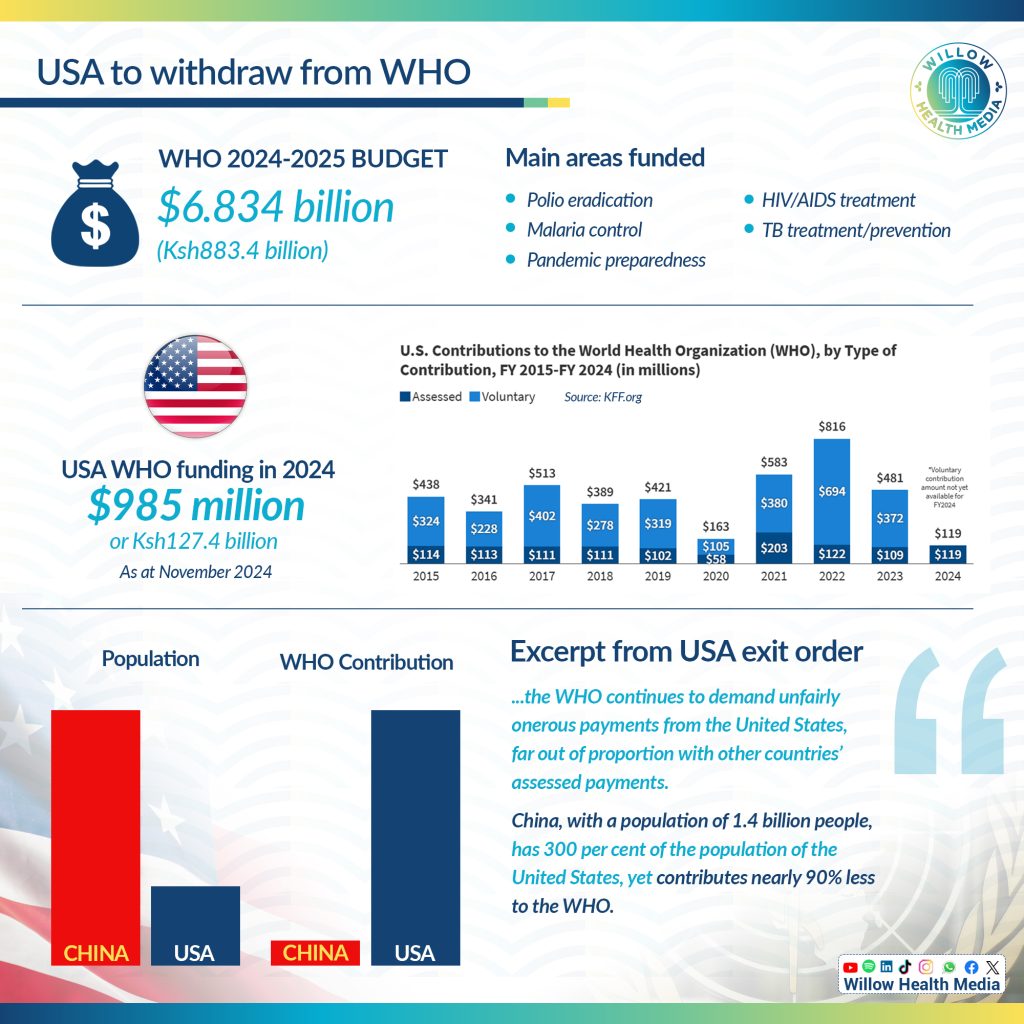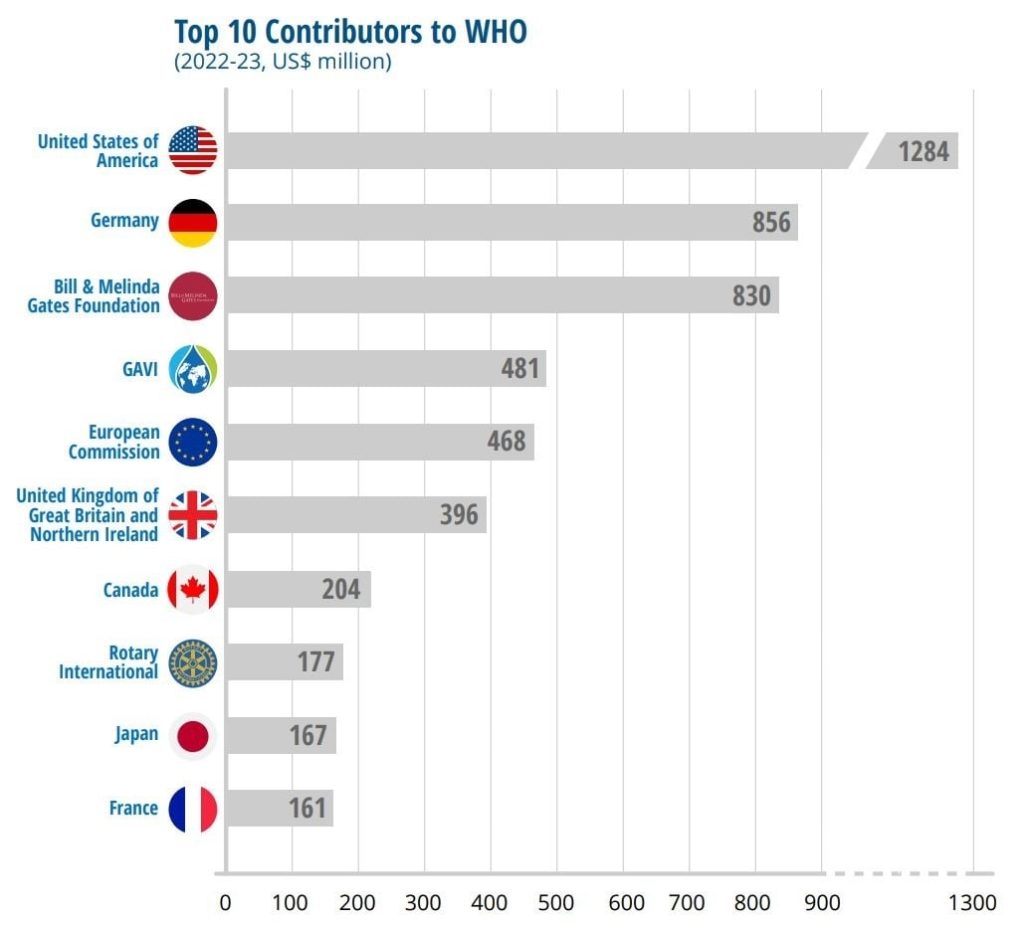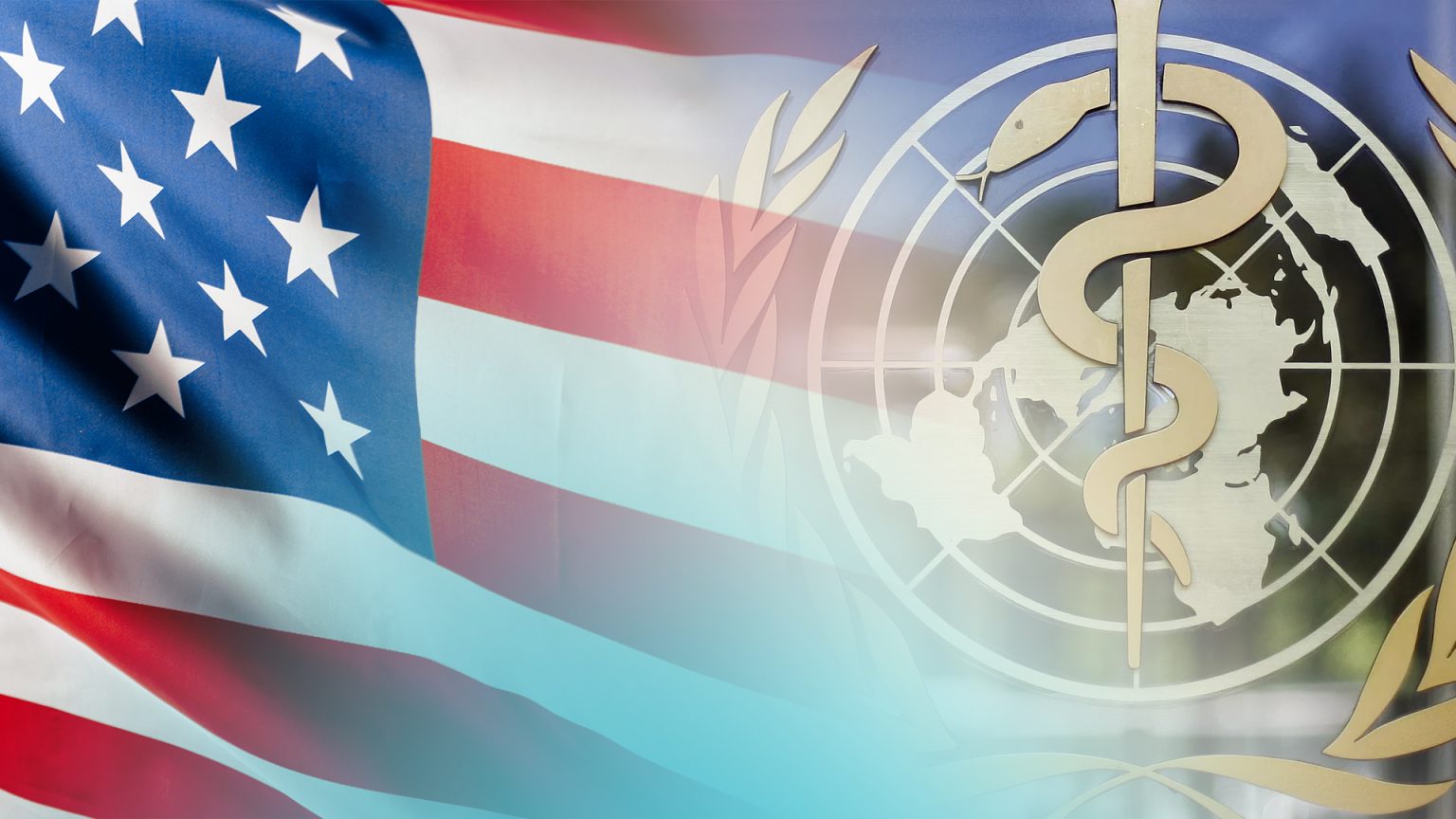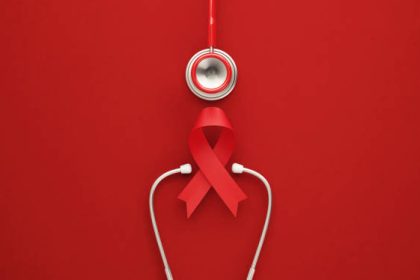The World Health Organization (WHO) has expressed its disappointment over the announcement by newly elected President Donald Trump, of intention to withdraw United States’ membership from the organization.
The global health agency released its statement yesterday, barely hours after President Trump was sworn in and signed a series of executive actions, including the decision to withdraw the US from WHO membership.
“The World Health Organization regrets the announcement that the United States of America intends to withdraw from the Organization,” the WHO statement read in part.
“The United States was a founding member of WHO in 1948 and has participated in shaping and governing WHO’s work ever since, alongside 193 other Member States, including through its active participation in the World Health Assembly and Executive Board. ”
For over seven decades, WHO and the US have worked together to combat global health crises, eradicate diseases, and build resilient health systems. In its statement, the organisation highlighted the extensive role it has played in safeguarding global health security.
“Together, we ended smallpox, and together we have brought polio to the brink of eradication. American institutions have contributed to and benefitted from membership of WHO. With the participation of the United States and other Member States, WHO has over the past seven years implemented the largest set of reforms in its history, to transform our accountability, cost-effectiveness, and impact in countries.”

The move by President Trump marks the culmination of a series of tensions between the US and the global health agency, which are expected to have far-reaching implications, particularly in Africa where US support has been pivotal in addressing health challenges.
While signing the decree, President Trump outlined the reasoning behind the withdrawal, emphasising WHO’s ‘poor’ handling of the COVID-19 pandemic and other global health emergencies.
“The United States noticed its withdrawal from the World Health Organization in 2020 due to the organization’s mishandling of the Covid-19 pandemic that arose out of Wuhan, China, and other global health crises, its failure to adopt urgently needed reforms, and its inability to demonstrate independence from the inappropriate political influence of WHO member states.
“In addition, the WHO continues to demand unfairly onerous payments from the United States, far out of proportion with other countries’ assessed payments. China, with a population of 1.4 billion people, has 300 per cent of the population of the United States, yet contributes nearly 90 per cent less to the WHO,” the order reads in part.
The decree also criticised the disproportionate financial contributions made by the US which, in 2019, contributed Ksh58.534 billion ($452 million), around 18% of the WHO’s total budget, compared to China’s significantly smaller contribution.
Historically, the United States has been a cornerstone in funding WHO’s global health initiatives. US financial support has ranged between Ksh20.72 billion ($160 million) and Ksh105.542 billion ($815 million) annually, accounting for nearly one-fifth of WHO’s total budget.
These contributions have supported key programmes in Africa, where the US has provided critical funding to combat major diseases and health crises. Among the most significant US-funded programmes in Africa include HIV and AIDS, malaria, tuberculosis and the health emergencies programme.
These programmes are vital to Africa, where the burden of diseases is immense. The US has been instrumental in financing these efforts, enabling WHO to implement life-saving programmes across the continent.

Impact on Africa
Withdrawal of the US from WHO will have profound consequences for global health, especially in Africa. The cessation of US funding could lead to financial shortfalls, subsequently jeopardizing the sustainability of critical health programmes.
Programmes aimed at tackling diseases like HIV/AIDS, malaria, and tuberculosis may face severe setbacks, and the progress made over the years could be reversed.
The loss of US funding for WHO’s Health Emergencies Programme, which has been central in responding to outbreaks like Ebola, cholera, and most recently, the COVID-19 pandemic, will significantly hinder rapid response capabilities.
Furthermore, the US has long played a key role in shaping global health policy, particularly through WHO. According to an analysis by Lancet, the withdrawal creates a leadership vacuum, which could allow other nations, especially China, to expand their influence within the organization. This shift could result in a realignment of global health priorities, potentially sidelining issues critical to African countries such as disease prevention, health equity, and emergency preparedness.
The absence of US leadership may also hinder efforts to reform WHO’s governance and operational effectiveness. For instance, the US has been a vocal advocate for reforms aimed at improving WHO’s independence and efficiency in managing global health crises. Without American participation, WHO’s ability to implement these reforms may be stifled, reducing its capacity to respond effectively to emerging health threats.
Geopolitically, the US withdrawal from WHO will diminish its influence over international health governance. The US has been instrumental in negotiating global health frameworks, such as the International Health Regulations and the Pandemic Agreement.
By pulling out of these agreements, the US forgoes a direct role in shaping international responses to global health challenges, leaving the door open for other nations to take the lead.
The decision also creates a funding gap that will need to be filled by other countries or organizations. The European Union has already expressed concern, urging increased contributions to offset the shortfall. Meanwhile, the African Union has voiced concerns about the impact this decision will have on health programmes in the developing world.
Financially, WHO may struggle to maintain its operational capacity in the absence of US contributions. WHO’s Ksh124.126 billion ($958.5 million) budget, which funds essential health initiatives like polio eradication, malaria control, and pandemic preparedness, may be severely reduced without American support. This could lead to scaling back or suspension of critical programmes, ultimately affecting the health outcomes of millions of people in Africa and beyond.
The United States’ withdrawal from the WHO represents a pivotal moment in global health diplomacy. While the decision highlights frustrations with the organisation’s handling of global health crises, it raises critical questions about the future of international health cooperation.
WHO however said it still hopes that the US will reconsider and allow for room to engage in constructive dialogue to maintain the partnership for the benefit of the health and well-being of millions of people around the globe.





















